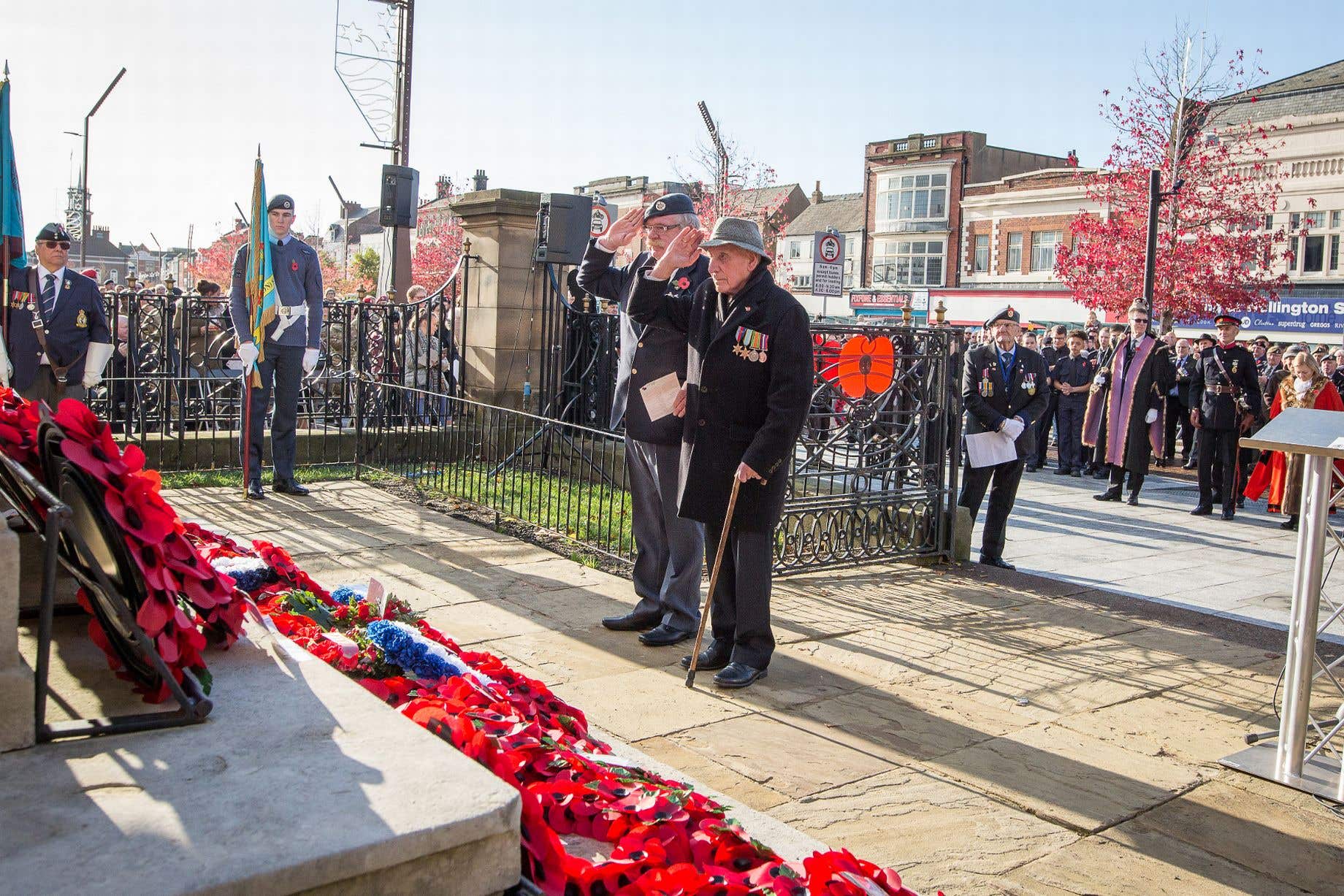RAF fly-past for World War Two veteran who survived being shot down on raid
Warrant Officer Bob Brown, who went on to teach primary school children, has died aged 103

Your support helps us to tell the story
From reproductive rights to climate change to Big Tech, The Independent is on the ground when the story is developing. Whether it's investigating the financials of Elon Musk's pro-Trump PAC or producing our latest documentary, 'The A Word', which shines a light on the American women fighting for reproductive rights, we know how important it is to parse out the facts from the messaging.
At such a critical moment in US history, we need reporters on the ground. Your donation allows us to keep sending journalists to speak to both sides of the story.
The Independent is trusted by Americans across the entire political spectrum. And unlike many other quality news outlets, we choose not to lock Americans out of our reporting and analysis with paywalls. We believe quality journalism should be available to everyone, paid for by those who can afford it.
Your support makes all the difference.The RAF held a fly-past at the funeral of a World War Two veteran who survived being shot down when his Wellington bomber was attacked on a night raid.
Warrant Officer John Robert Brown, known as Bob, from Stockton, Teesside – who was held a prisoner of war for four years, died at the age of 103.
His great-nephew is training in the RAF squadron and organised a fly-past by a Typhoon fighter jet over the funeral on Teesside on Monday.
Representatives from the RAF joined family and friends for the service for the Bomber Command and IX Squadron veteran, who became a primary school head teacher in Norton after the war.
An unnamed Typhoon pilot from RAF Lossiemouth, who carried out the fly-past, said: “It is a great privilege as a IX Sqn pilot to honour one of our former pilots and Second World War hero in this way.”
Mr Brown joined the Royal Air Force Volunteer Reserve just after the war started.
He completed his pilot training on Tiger Moths and Avro Ansons, before being posted to IX Squadron at RAF Honington to fly Wellington bombers.
On only his second operational mission, his aircraft was hit by enemy fire over Germany and crashed.
Only he and the rear gunner survived as the other four crew members were killed.
Mr Brown bailed out and was captured by soldiers and was held at different prisoner of war camps for more than four years.
Recalling the experience in an interview with the Teesside-based Gazette newspaper when he was 100, Mr Brown said: “You developed a bit of a shell – and lots of us were in the same boat.
“Some were very clever lads – as one German officer said, ‘I don’t think it’s a good thing to have so many clever lads under one roof’.
“But we really supported each other.”
Mr Brown looked back at his prisoner of war experience and said: “It happened – nothing can change that – but I certainly don’t have any bitterness.
“Although I don’t think I could do it again.
“But we all have to live together and each of us can contribute something towards a good future.
“It’s no good living in the past.”
When the camp was liberated, he was flown back to RAF Cosford carrying only two bags, one of which was half full of cigarettes.
He remained proud of his RAF service and would proudly recite the two mottos which meant the most to him: IX Squadron’s motto – “Per noctem volamus” – we fly by night – and the RAF’s motto – “Per ardua ad astra” – through adversity to the stars.
The father-of-one was an honorary member of the IX Squadron Association and frequently attended Remembrance events, even into his centenary years.
He took great pride that his great nephew was following in his footsteps more than 80 years on.
His great nephew, who asked not to be named, said: “I am exceptionally proud of my great uncle Bob. I am about to start my training on the Texan aircraft and following training, I hope to fly Typhoons on IX(B) Sqn to continue his legacy.”